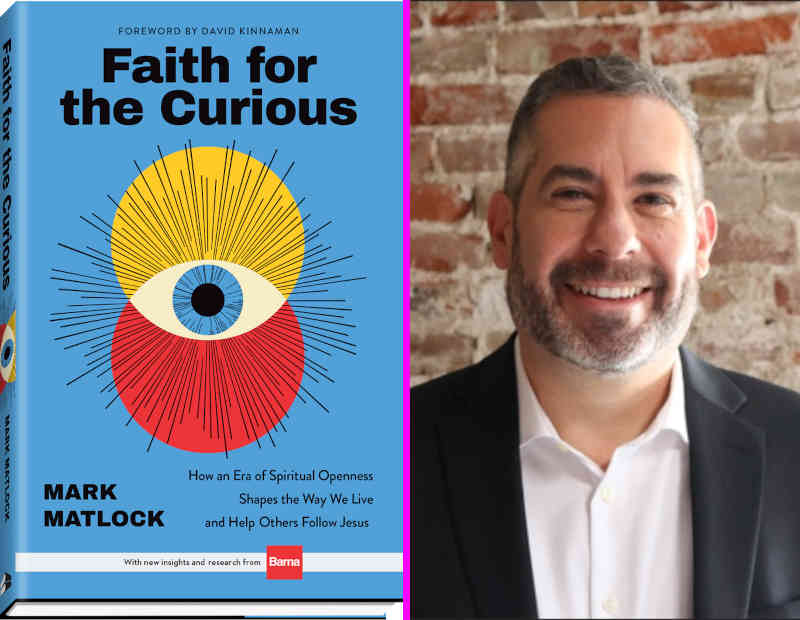It’s fair to say that the church in the western world isn’t flourishing at present.
Generally losing numbers, many people not interested, or maybe even antagonistic. And seemingly speaking in language that doesn’t communicate well.
But at the same time, many people are spiritually open and curious, if only Christians could connect with them.
This important book says there is a way, if the church gets its act together.
The church and the mission of Jesus
Jesus left his followers with a straightforward mission – to love God, love neighbour and make disciples.
The western church faces a number of difficulties in making disciples:
- Many people aren’t interested (they don’t think the Christian faith is relevant to their lives) or have a negative view of the church (because of church and Christian behaviour they don’t approve of).
- We don’t seem to be very effective in communicating how Christian faith can be relevant today. We don’t know how to do it well.
- Changing how the church meets and how it presents its message, in order to be more relavnt, is often difficult because older Christians often want to preserve what they are familiar with and what encourages them.
Mark Matlock has some good answers
Mark is a minister, former youth pastor, author and researcher with the Barna organisation in the US. This book presents ideas on how to improve how the church seeks to make converts, and will be useful to anyone who is leading in a conventional church …. or anyone who wants to build God’s kingdom here on earth.
Starting facts
Many people who aren’t interested in the church may be interested in spirituality generally. For example, surveys show that about half of US adults are spiritually curious. This means they are likely to:
- believe in and be open to the spiritual;
- not be interested in institutional religion;
- respect Jesus and his teachings; and
- be happy to discuss if they feel the conversation is “safe” and constructive.
If Christians are going to make disciples, then here are people who are more likely to be open to conversations about spiritual matters, if they are conducted sensitively by Christians.
Being friends with the spiritually curious
Christians are not always good at being friends. Too often we have been taught by over-zealous pastors to tell our friends about Jesus, without being given much guidance about how to do it, and not to do it. (I wonder if this is because pastors can live in their own little bubble and don’t know themselves how to relate with non-believers simply as a freind.)
Mark suggests that we need to learn to:
- care about people as people, not just as prospective converts,
- give them space and time,
- not put expectations on their response,
- focus on asking questions, getting to understand their spiritual journey,
- listen without judgment,
- be honest about our doubts,
- express our own ideas only when they are wanting to listen, and
- tell stories more than theological facts.
Like Sam Chan, Mark suggests we need to emphasise aspects of the Christian faith that are most relevant and helpful to the spiritually curious. For example:
- Remember all people reflect something of God’s image. Starting there and finding what this is in a person is likely better than starting with “lostness”.
- See “sin” as a destroyer of relationships rather than a list of “bad” behaviours.
- Frame redemption as a way of fulfilling potential robbed by sin.
It might also help if we see alternative spiritual ideas and practices, such as yoga, fortune telling, Buddhism, meditation, horoscopes, etc, as indicators of spiritual searching rather than something to immediately oppose. Perhaps ask questions about why they have that interest.
Other responses that may help conversations include: “Tell me about your tattoo” and “Tell me about someone whose spirituality you admire”.
Why are Christians so boring?
Mark observes that Christians, in the US at least, tend to be more conservative, which tends to make them more risk averse and less curious. Conservatism is characterised by fear of change and acceptance of inequality.
He suggests we need to be more curious ourselves, to help others and to help ourselves. Here’s why.
Digital Babylon requires stronger Christans
In the Old Testament, the Jews were made captive and forced to live in exile in Babylon, where they were exposed to new and sometime shocking ideas and had to adapt to this foreign culture.
Christians in western countries face some similar difficulties. After a millennia of Christendom, we are now surrounded by a secular culture. Our digital connection exposes us to a wide range of ideas and cultures that can disorient us. We are exiles in our own land!
This rapid pace of change is exposing the fragility of the faith of many Christians. Digital Babylon requires resilient disciples, not just strong ones. (Strong can break under pressure but resilient can bend and adapt.)
How the church can help
Mark suggests that churches can better prepare Christians for Digital Babylon and to be able to share their faith and lives with the spiritually curious.
Encourage questioning. Don’t see curious Christians and dissidents in the church as troublemakers, but as valuable contributors to the tasks of making the church more relevant and making more resilient disciples.
Provoke thought. Jesus told parables to give people something to ponder, something that might break through their prejudices. Music, talks, studies that are subtle and thought-provoking may help produce resilient disciples far more than starightforward instruction may, because they engage people and encourage them to think issues through.
Walk the talk. We pray for God’s kingdom or rule to come on earth as it is in heaven, but too often we don’t try to demonstrate that in a tangible way. Make things new, seek the peace of our city, serve the people around us, care for the earth, be creative. Pursuing the kingdom in this way can awaken the image of God in people.
Train Christians for the new reality. Help people learn how to understand culture, be sensitive to others, converse and engage in Socratic dialogue, and to express Christian faith in relevant terms.
Flexible learning. Museums curate how people learn without forcing how a visitor proceeds. Churches could do the same – see e.g. Stations Church.
The bottom line
There is probably little in this book that is genuinely ground-breaking. But it is full of useful insights and practical ideas. If churches took notice and made changes, I believe things would improve. Highly recommended!

Urban tribes and the church
I was walking in the inner city and observing the people who lived there …. and wondering how the church could ever reach out to them.

Why evangelism needs to change
The way we share faith with people outside the church must change to suit the times.

Evangelism in the twenty first century
Society has changed since Billy Graham, so evangelism needs to adapt to stay relevant. Here are some ideas to do that.

Leave a Reply